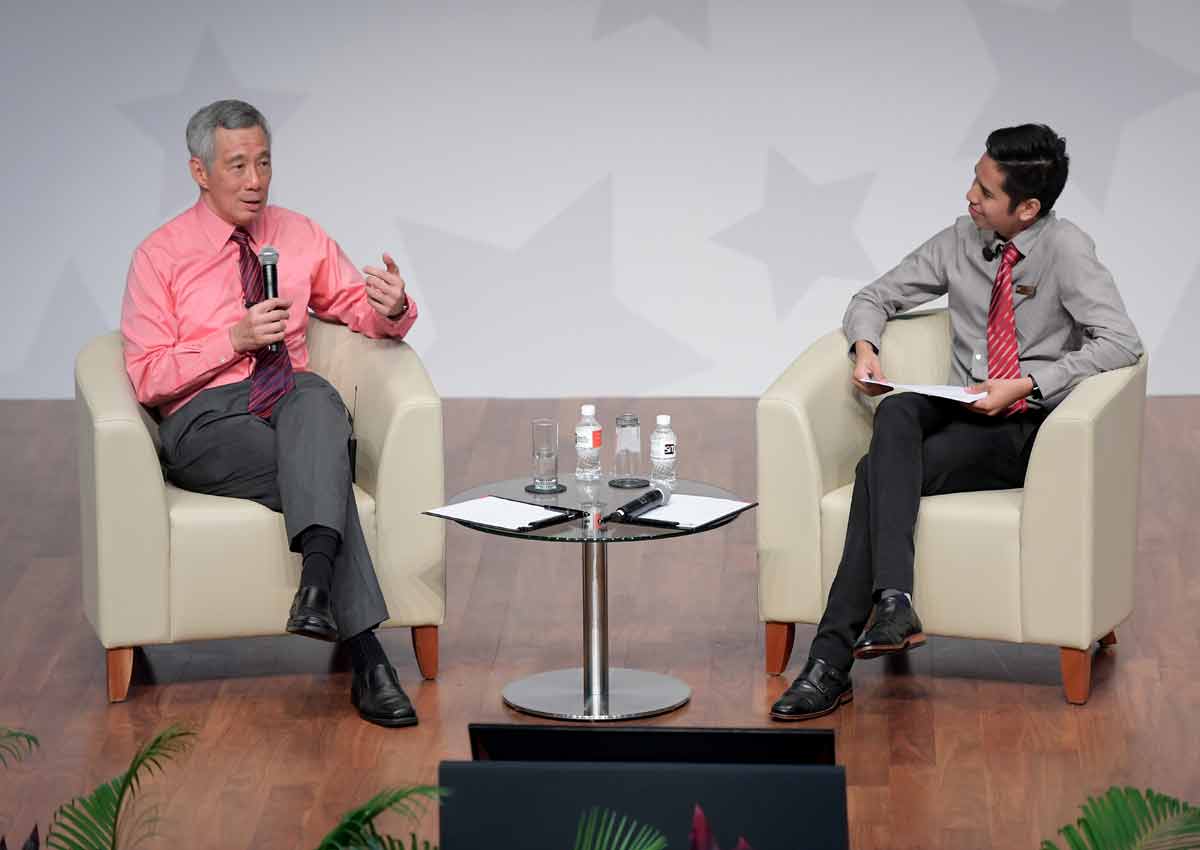SINGAPORE – The world economy is struggling, but Prime Minister Lee Hsien Loong is confident that Singapore, in the long term, will do well.
He said the country has every reason to be optimistic: It is highly connected, and has a reputation as an outstanding place to do business.
Also, it is also creating many new jobs, and continues to invest in its “hard-working and talented” people through education.
“If any city in the world is in a position to do well in the new world economy, Singapore should be that place,” he said.
“We are feeling the pains of restructuring, but not yet seeing the dividends of our hard work. But we are pursuing all the right strategies, and I am confident that given time, they will work,” he added.
But how well the country does, and the society it will be in the next 30 years, depends on the next generation, Mr Lee said in a speech to 500 students and faculty members at the Singapore Institute of Technology on Monday (Oct 24) that sought to assure them the future was theirs to shape and determine.
“As young Singaporeans, the world is your oyster. You have many opportunities, many more than your parents had,” he said.
“But you have to seize them, make the most of them, and create further opportunities for yourself.”
Singapore’s future will also depend on whether today’s young are resilient in the face of uncertainty and change, and whether their generation works together as one united people, Mr Lee added.
The Government, he said, was opening up educational opportunities for students to not only earn a good certificate, but acquire the know-how to find good jobs and achieve their aspirations.
He added that creation of job opportunities for Singaporeans and companies here is almost always on the agenda when he travels, citing recent visits to China, Japan, India and Australia.
To make use of these opportunities, Singaporeans must be be able to adapt to new conditions when they arise, he said.
“We’re not the strawberry generation. These are durians – very tough,” he quipped, to laughter from the crowd.
He cited how taxi companies are worried about competition from Uber and Grab, when driverless cars are on the way, as an example of how quickly technology is progressing.
One way to cope with the changes is to make use of SkillsFuture schemes, he said: “You must have the resolve and spirit to take up the schemes , to switch jobs or move to a different industry if the economy shifts – to learn, unlearn and relearn things all your life.”
But Singapore’s real strength lies in the unity of its people, which he said accounts for why Singapore has the best workforce in the world, and urged the students not to take it for granted.
“Our unions, management and goverment trust one another, we adopt a win-win mindset,” he said.

This article was first published on October 24, 2016.
Get a copy of The Straits Times or go to straitstimes.com for more stories.






